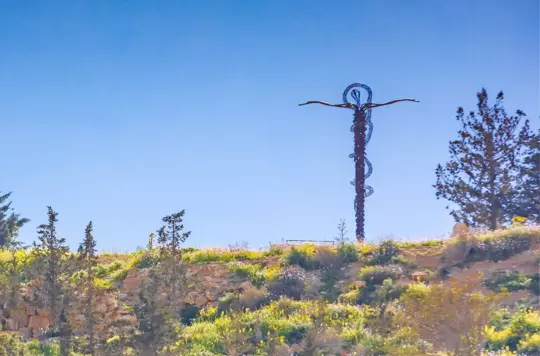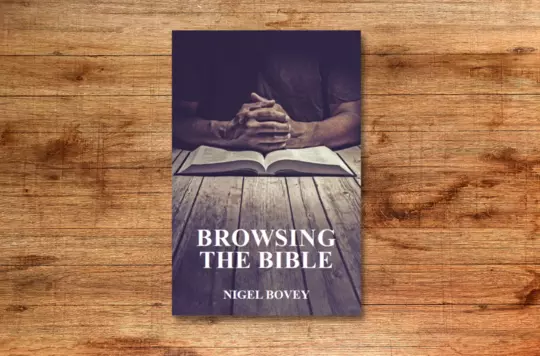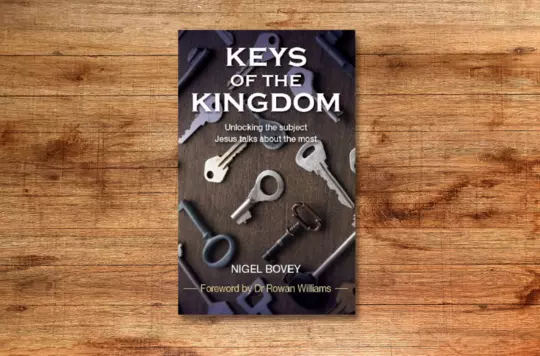16 September 2023
The parable of the workers in the vineyard
Major Nigel Bovey
Major Nigel Bovey gleans insights from a harvesting story.
Key text
Whenever it falls, harvest is a matter of delicate timing. Pick too soon and the crop is not at its ripest; pick too late and the produce will be past its best. When precisely to bring in the golden sheaves, dig up the buried veg or handpick the bulging fruit is informed by two forecasts – meteorological and financial. Offering weather-damaged crops or being late to an already flooded market results in lower prices. Livelihoods depend upon getting the fresh produce to market in time and on time.
As with many of his parables, Jesus uses a familiar occurrence to teach about the unfamiliar Kingdom of Heaven.
Harvest time is approaching and the landowner is in a race against time. At six o’clock in the morning, he finds his first batch of workers. These are the early birds, the keen ones and he ‘hires’ them, paying them a denarius for the day. The Greek word misthoo implies a contract. This idea is reinforced in verse 2 by the word ‘agreed’. The Greek here is sumphoneo (from which we get ‘symphony’), which literally means ‘together sound’. While verse 2 says ‘he agreed’, they agreed also. The workers must have felt that a denarius was, at the least, a fair day’s pay.
Aware that he is up against time, the landowner recruits three more work gangs (see vv3–5). On no occasion is there mention of contract or money, beyond the landowner’s promise that he will ‘pay you whatever is right’ (v4). His word is enough and the workers head to the vineyard.
Pause and reflect
- How often are we prepared to do what God asks simply by taking him at his word?
It’s now five o’clock. With the sun heading west and profits going south, the landowner needs to squeeze every drop of possibility out of the last hour. Perhaps out of desperation, he returns to the marketplace, where he finds men who are desperate for work – even the scraps.
They have been available all day but no one has wanted them: ‘No one has hired us’ (v7). For whatever reason, nobody has thought them suitable or worthy enough to employ. They have been written off. Discounted. Worthless.
Pause and reflect
- The last-hour workers waited all day to be hired because nobody had asked them. All it took was one invitation. Who should we be inviting to worship?
- Do we really believe that the Kingdom is for the whosoever?
- How much do we expect people to change their lifestyles to become worthy of a place in the Kingdom?
The landowner, though, sees their value. He recognises their potential and that they could make all the difference. He puts them to work.
Come evening, all the workers gather to collect their wages. Those who started last – the cast-offs – not only get paid first but they also get paid the same amount as those who grafted for 12 hours (see vv8–10). Roman currency also included the as, which was worth one tenth of a denarius, so the landowner could have paid them less.
Pause and reflect
- The workers would likely have told their friends about their payday and recommended they seek out the landowner. How readily do we recommend Jesus to people who are desperate for life to be better?
Little wonder that the long-termers begin to ‘grumble against the landowner’ (v11). Not unreasonably, they point out the injustice: ‘That’s not fair! We’ve slogged all day in the sun. We’ve sweated our guts out and you’ve given this bunch of losers the same as us! You cheating…!’
Verse 13 contains a very important word – ‘he’. In verse 8, the owner of the vineyard delegates responsibility for the payment of wages to his ‘foreman’. When ordering the pay queue, the foreman would likely have faced some fiery questions from the early-starters. Now that things are getting nasty, the landowner relieves the foreman and faces his critics himself. This is leadership. Here is integrity. We have to take personal responsibility and accountability for our decisions, even if it means facing hostility.
The landowner tells them: ‘I am not being unfair’ (v13). He reminds them of the deal. Rhetorically, he asks them: ‘Didn’t you agree?’ There’s that word sumphoneo again: it was a ‘together-sound’ contract. They can hardly say that, they didn’t.
Pause and reflect
- How readily do we take responsibility for our decisions, actions and reactions?
- How easily do we hide from our critics rather than face them?
The landowner is being more than fair. He counters: ‘Don’t I have the right to do what I want with my own money? Or are you envious because I am generous?’ (v15). It is a question as withering as the leftover grapes on his vines.
This story is not a template for industrial relationships. Verse 1 reminds us of its purpose: ‘For the Kingdom of Heaven is like…’ Verse 16 contains one of the operating principles of that Kingdom – a reversal of the world’s values.
The contracted workers thought they deserved more. The late-arrivals thought they deserved less. They were all wrong.
The operating system of the Kingdom of Heaven is grace. Grace is a product of God’s goodness and generosity. By definition, grace cannot be earned; it can only be received or rejected. In God’s Kingdom there is no first or last. People are all equal, even those – maybe especially those – whom we might write off as being unworthy.
Bible study by

Major Nigel Bovey
Retired Officer, Exmouth
Discover more

Major Nigel Bovey examines Paul’s approach to sharing the gospel.

Major Nigel Bovey says there’s no need to settle for replica faith.

Emily Bright interviews Major Nigel Bovey about the books he's written and the books he loves.

Lieut-Colonel Alan Bateman reviews the latest publication from Major Nigel Bovey.
